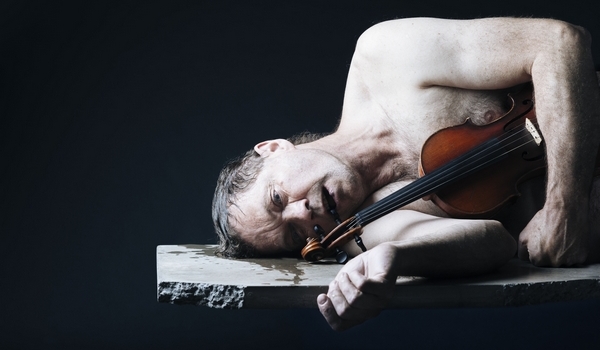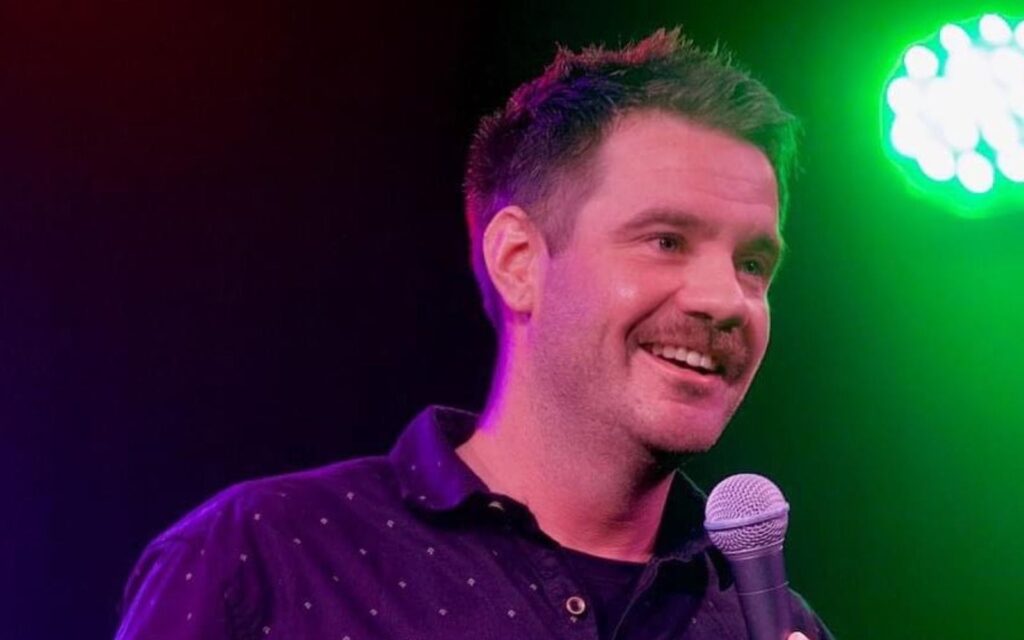“From around year 10 I knew I wanted to get away from the notes on the page, so I joined a school stage band,” Kolac recalls. “Obviously when you’re playing with a bunch of horn players, with guitars and drums you can’t really hear the acoustic violin and the pickup can be quite problematic with feedback. So I decided I needed to get an electric violin, and I found Paul Davies, an amazing [instrument] maker. I love it so much. But from there I went on this journey of trying out different effects pedals and loops. I remember one gig I did at The Espy with this distortion pedal. I’d been practising in my bedroom, but because I’d never used it in a live environment before there was this immense, high-pitched piercing feedback, and it was so traumatic! I didn’t touch a pedal for two years. So a lot is trial and error, and because there weren’t that many other electric violinist around I could talk to, I was going about making heaps of mistakes. I’ve found that the electric violin is where I am. I did a lot of classical, but it wasn’t my style, I had to find my own voice. And this violin became my sound.”
With her involvement with RICERCAR, Kolac’s musical evolution has in a way come full circle. While classical performances may not be her principal passion, this Theatre Work’s world premiere has its genesis in one of the bedrock texts of classical performance and interpretation, The Well-Tempered Clavier. Indeed, the Bach collection is generally held to be one of the most important cornerstones in the history of classical music.
“It’s more abstract theatre. If you’re going along expecting a real storyline you’re not going to get it, it’s more of an aural and sonic experience. It’s experimental theatre, in a way. You’re going to hear a lot of different things and find yourself listening in a different way than if you just went to a gig and stood there. The sound is moving all around you, and then there are images that kind of fit the sound. It was almost like the music was there first, and then the text, the images came after whereas in traditional theatre it’s usually the other way around. Loosely it’s based on the two books of The Well-Tempered Clavier. You don’t need to know stacks about Bach, but he composed these two books based around fugues. Book One kind of explores the themes of Bach’s life, be that death, violence, beauty or memory, and what the fugue means in those different worlds, not just within music. Then in Book Two it starts to piece together the work of Book One in a more contemporary and modern way.”
While there are “personas” that Kolac and Leahy embody during the performance, they are foremost playing musicians – anything too removed from her usual self, and Kolac finds herself becoming too self-conscious on stage. The pair have been collaborating on the project for the better part of the year, although the production itself has been slowly coalescing for some time.
“It had been in development since around the beginning of last year, but we both really only came fully onboard this year. The music director, Nathan Gilkes, he’s done a lot of the arrangement and the composition, and we’ve come in and tried to get into his mind, to try and produce the sound he has in his head. I’ve done a lot of different theatre productions before, but that’s been with [venues] like Malthouse, Melbourne Theatre Company, where everything is very scripted, there are cues to everything. But the way that Present Tense works is more collaborative and improvised, so it’s been a very different experience but one I think we can have a little more input in.”
RICERCAR is an operatic event that sounds truly fascinating, not just in content but in form. Combining visual arts with traditional actors, pop artists with opera singers, loops and mathematics, it is likely to be the most arresting ensemble 2015 has left up its sleeve. While the choreography of Gilkes and Bryce Ives will tie this all together, utilising the idiosyncrasies of a particular venue is something that Kolac has experienced herself and finds tremendous inspiration in.
“We’ve done a couple of really special shows this year that I’ve organised specifically for different venues. [They’re all] completely different, I don’t know how we memorise so much music without my brain exploding. We did one at The Gasometer in July, where I arranged all our music for string players, and they were all playing from up on the balcony there. When you can actually see a venue and envisage something interesting happening there, that can be really special, to have that control but still know that anything could happen.”
BY ADAM NORRIS







